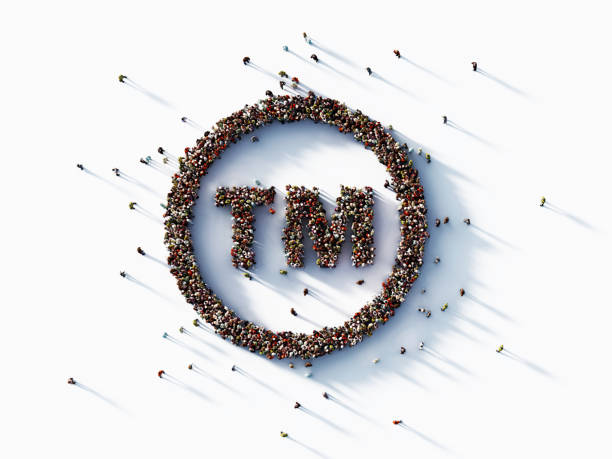“Gotta get ‘e choke’ copyrighted it’s getting outta hand” [Davido, 2021]. This tweet by popular Nigerian musician David Adeleke popularly known as “Davido” has definitely caused some level of discomfort to the Intellectual Property Lawyers. This is because the possibility of the A-list Nigerian artist carrying out his proposition is near impossible in law.
WHAT CAN BE REGISTERED AS A TRADEMARK?
Any device, brand, heading label, ticket, name, signature, word, letter, numeral, or any combination can be registered as a trademark.
WHAT CANNOT BE REGISTERED AS A TRADEMARK?
- Deceptive or scandalous designs, logos or matters that are likely to cause confusion.
- Names of chemical substance and geographical names in their ordinary signification.
- Identical and resembling trademarks should not be registered.
- It should also be noted that musical jingles; smells and other non-traditional marks are not approved by Law.
WHAT IS A COPYRIGHT?
Section 1(1) of the Copyrights Act 2004 gives a list of works eligible for copyright; (a) literary works; (b) musical works (c) artistic works (d) cinematography films (e) sound recordings and broadcasts.
It is safe to say that the distinction between trademarks and copyright is glaring from the definitions of works that fall within the ambit of both concepts. Hence, a slogan/slang like “e choke” cannot be copyrighted because it does not fall under the list of works eligible to be copyrighted as defined by the Copyrights Act 2004.
TRADEMARK REGISTRATION IN NIGERIA
Having established what is eligible for registration as a trademark, it is important to take a brief look at the process as well as the guidelines for registration of trademarks in Nigeria. The regulatory body responsible for the registration of trademarks in Nigeria is the Registry of Trademarks under the Ministry of Trade and Investment. The governing law is the Trademarks Act, 2004. It is therefore important to note that for a trademark to be registered in Nigeria, it must be un-identical or similar to an already existing mark, but it must also pass the test of distinctiveness.
Additionally, in Nigeria, Trademarks are registered in classes. There are forty five (45) classes of Trademarks in Nigeria. Each class is made up of different classifications or categories of businesses and it usually depends on the nature of the business or services rendered; a trademark may need to be registered in more than one class to be protected across board. The implication of this is that each class application is a separate application, independent of the other. This means that upon application for registration, the required statutory fee and professional fee are paid for each class of trademarks and upon issuance of the certificate of registration, all classes of the trademark are filed separately.
CONDUCTING A SEARCH
This is the first step when it comes to trademark registration. A search is conducted on the proposed mark to be registered to confirm the availability and registrability of the trademark in the class or classes the mark is proposed to be registered in. For instance, if the Nigerian artist, Chike decides to trademark the name “Boo of the Booless”, having determined what class of trademark the intended words or logo comes under, he or his agent would conduct a search to confirm the availability and registrability of the trademark.
FILING
As soon as the proposed mark is confirmed available for registration, the trademark can be filed. Please note that only accredited trademark agents are responsible for filing of trademarks in Nigeria. Upon payment of the required application fee, the trademark is filed and an acknowledgement form is issued. The acknowledgement form is a prima facie; evidence that an application is ongoing. Subsequently, an acceptance or refusal letter is issued by the Trademarks Registry.
The acceptance letter is proof that the applicant has an equitable interest in the mark and can file an action if the trademark is infringed upon while a refusal letter is issued when the mark is not accepted by the Registry which automatically stops the application process from proceeding to the next stage. A refusal letter can also be issued if the mark appears to the approving officer as similar or identical to an existing mark, or generally appears to the approving officer as a mark that the Act prohibits from being registered.
The Acceptance or Refusal Letter takes about three (3) weeks to be issued, considering all formal approvals. One of the documents required to file a trademark is a Power of Attorney in the format prescribed by the Trademarks Registry. The power of attorney should contain the name and address of the applicant, the trademark name and class intended to be registered, the name and address of the agent and the signature of the applicant. Where the applicant is a company, signature of any of the Director(s) or Secretaries is allowed.
It is therefore important to note that where a logo is trademarked in one particular colour, it is only protected against infringement in that colour. However, where a logo is registered in grayscale (black and white) it is protected in all colours.
PUBLICATION
This is the next stage after the acceptance letter has been issued. The trademarks registry publishes a quarterly journal. This journal shows the list of marks that was accepted for the quarter. The aim of this journal publication is to give a two (2) month notice to anyone who has an objection as to why any of the published trademarks should not be registered. In the course of this reviewing process, all grievances or complaints should be addressed to the Registrar of Trademarks. After the expiration of the two (2) month notice period, the Registry starts to accept payment for published trademark certificate(s).
CERTIFICATES
Trademark certificates are issued in about a month, after the payment for the certificate has been made. Trademark certificates are valid for seven (7) years in Nigeria after which they should be renewed. Upon renewal, they are valid for a period of fourteen (14) years. It is important to note that only persons- natural and artificial can own trademarks.
CONCLUSION
In conclusion, while protecting trademarks against infringement and unauthorized use by third parties, the Nigerian entertainment industry and the entire country at large still needs to be educated on the concept and its advantages. In the Nigerian entertainment industry, very little or better put, next to nothing has been done in the area of trademark registration as it relates to artists, actors and celebrities at large. Although, very recently, veteran Nigerian actress, Omotola Jalade Ekehinde popularly known as ‘Omosexy’ trademarked her name ‘OMOTOLA’ and has exclusive use over the name as far as Nollywood is concerned. We look forward to many more of this, not just amongst companies but also within the entertainment industry.



I needed to thank you for this good read!! I definitely enjoyed every little bit of it. Ive got you book-marked to check out new things you postÖ
דירות דיסקרטיות בתל אביב